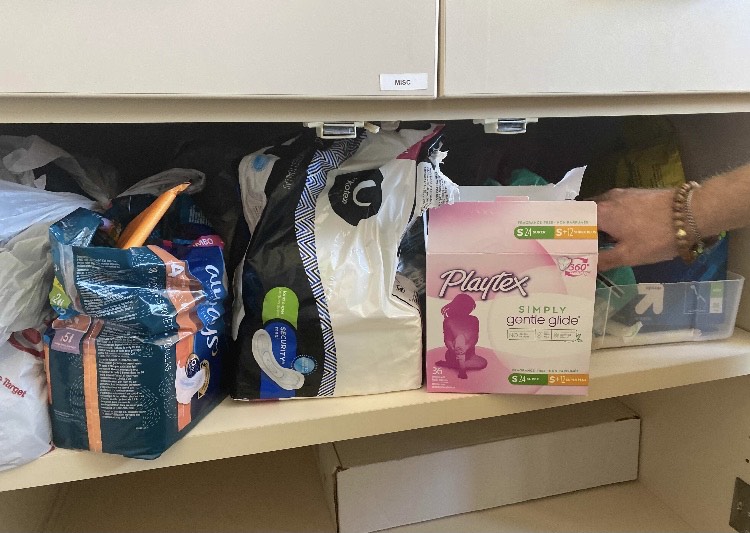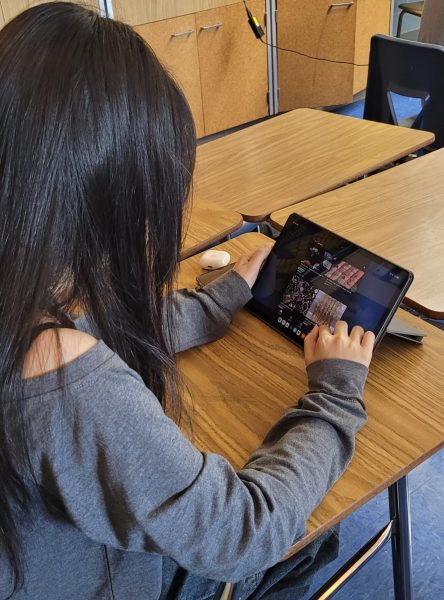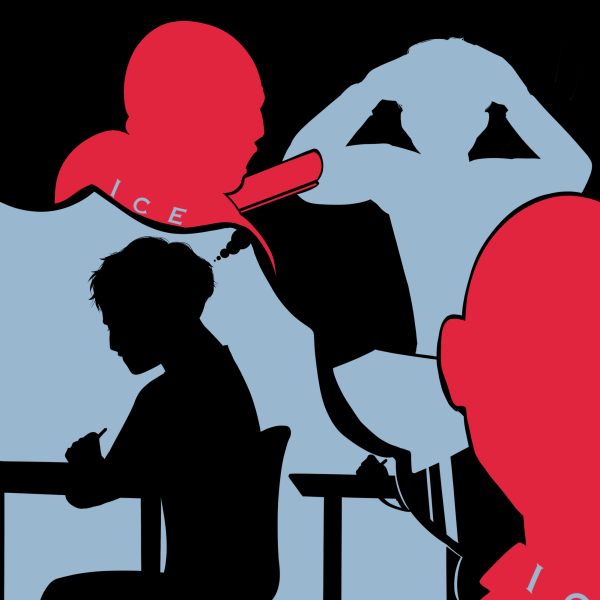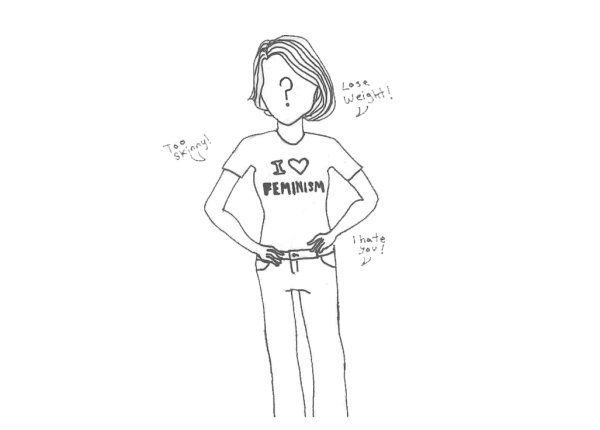Period poverty brought to forefront with newly free menstrual products
The overflowing menstrual product cubby in Mr. Hardman’s office is representative of how periods are seen within the public school system — an afterthought.
Periods. They have more than one meaning, whether it’s a part of a menstrual cycle that affects women’s lives or a form of punctuation that ends a sentence. Both are relevant in modern society, so why is one treated as something to be embarrassed about? Periods are pretty simple, you would think, but menstrual products are hard to come by for a lot of people.
¨[A]lmost two-thirds of women in the U.S. with a low income could not afford menstrual products in the last year, while nearly half sometimes choose between buying food or menstrual products,” a 2021 BioMed Central study said.
This is period poverty, an epidemic that few ever think about. I personally cannot imagine how hard my life would be without easy access to some sort of menstrual product, then get reminded that every month you have to choose between food or pads.
In the state of California, schools must now provide free menstrual products and this law includes both public colleges and high schools. California is one of the only states in America taking action towards free products in all their schools throughout their state.
My freshman year at Columbia Heights High School was tumultuous, to say the least, but the thing that I remember the most was that I had to pay twenty-five cents a pad when I really needed it at the nurse’s office. If I did not have the money to pay for the pads, then I had to add my name to a long list of my fellow classmates that also had to deal with this embarrassing moment at different times while dealing with the innumerable other stresses of high school.
During the first 13 months of the global pandemic, students were forced to stay home, and that often meant not having fresh, hot meals for the day. The school decided that they would offer a delivery meal plan (that I and so many other students supported and were grateful for), but it seems no one ever thought about how menstrual products were needed. If students depend on school for their meals, how can they pay for menstrual products every month or so? We never know someone’s home problems, whether they are homeless or just cannot spend money on pads, just as we assume the same about food.
As we returned to in-person learning for all this fall, and the policy of charging 25 cents per pad returned as well, I decided to take this situation into my own hands and understand why this was happening, especially since the bathroom dispensers do not even look that trustworthy, and I never wanted to plug in coins I never had on hand in order to find out.
I went to the nurse’s office instead but still questioned why I had to pay 25 cents for a pad. Yet when I asked how the menstrual products were being supplied, I was surprised to see two big bins of assorted brands. I asked new CHHS school nurse Mr. Andy Hardman about the bins, and he simply replied that it was just there when he came in for his first day on the job.
In the midst of our discussion, Hardman noted how the school supplies free band aids to students, which stops bleeding, but not menstrual products. When I cut myself with a knife in the woodshop, I bleed, and I do not have to pay any amount of money to use that band aid. So why do I have to pay for something that obviously does not stop bleeding until a couple days go by?
After my conversation with Mr. Hardman, I was called down to his office the next day. He told me that he talked to some of his superiors in the school stating that they found some extra money in the budget to supply menstrual products. Funny how they were so quick to find the funds as soon as I started asking questions. I know that I may be naive sometimes, but money does not magically fall from trees, and the amount of products I was shown when I first stepped in Hardman’s office could last several students for a long time.
Columbia Heights High School is not the first to give free menstrual products and will not be the last, but I as a senior now will not have to feel the embarrassment of looking in my bag for a quarter for a pad. Something natural like my period is not something I should be ashamed of, nor should I be charged for it. It is something that happens to billions of people all over the world, including people that can not afford to buy them.
This change helps us open doors for more conversation, and hopefully, as we continue to speak up for access to other student needs, we will continue to be heard.
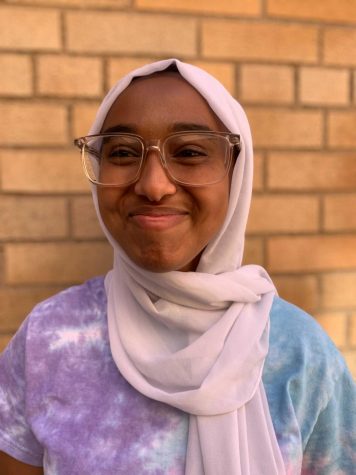
Amina Jama is a senior at Columbia Heights High School. She is the News Editor for the Heights Herald and is interested in books and writing.


